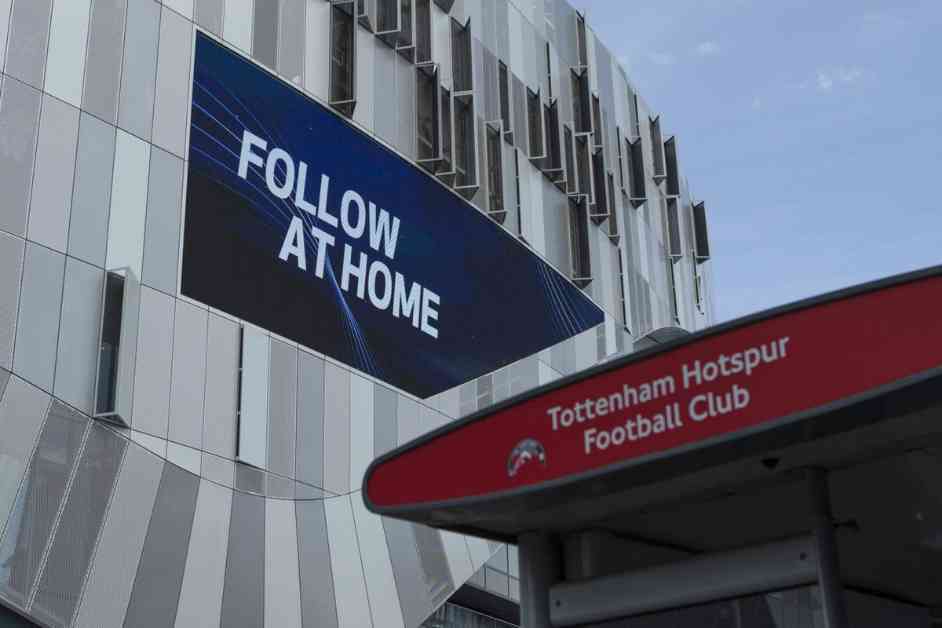In my early twenties, I found myself in a familiar situation at a rooftop bar, engaging in small talk with a friend of a friend. Desperately trying to keep the conversation flowing, I inquired about her origins, to which she replied, “Folkestone.” A coastal town in Kent, in the south east of England. Without missing a beat, I blurted out “Folkestone Invicta,” the name of the town’s local non-league club, currently competing in the seventh tier of English football. The look on her face remains etched in my memory, a mix of utter boredom, indifference, and a hint of pity.
Fast forward to the present, and we find ourselves in a similar predicament, but this time with a Premier League giant. As revealed by The Athletic on Friday, Tottenham Hotspur is demanding a change in how they are referred to. No longer satisfied with just “Tottenham,” the club insists on being called “Spurs” for short, and has specific guidelines for other monikers. According to their recent communication to Premier League broadcasters, the preferred terms are “Tottenham Hotspur,” “Tottenham Hotspur Football Club,” or “THFC.” Any other variation is strictly prohibited.
Roots of the Name:
Interestingly, the rationale behind this shift harks back to the club’s humble beginnings. Founded in 1882 by a group of schoolboy cricketers as ‘Hotspur FC,’ the addition of ‘Tottenham’ came two years later due to a mix-up in mail with another club named Hotspur. The club argues that ‘Tottenham’ refers to the area, not the club itself, a stance they have maintained for years. This historical nuance sheds light on the significance of the club’s preferred nomenclature and their attempt to clarify their identity.
Tottenham’s insistence on ‘Spurs’ over ‘Tottenham’ is not an isolated case in the footballing world. Many clubs have undergone similar rebranding efforts to appeal to a broader audience and enhance marketability. While these changes may seem minor, they underscore a larger trend in modern football where commercial interests often overshadow a club’s local roots and heritage.
Global Branding vs. Local Identity:
The push towards global recognition and marketability has become a driving force in football clubs’ decision-making processes. In an era where clubs are vying for international acclaim and commercial success, the balance between preserving local identity and fostering a global brand has become increasingly delicate. The tension between tradition and innovation is palpable, with clubs grappling to stay relevant in a rapidly evolving landscape.
Tottenham’s rebranding efforts are part of a larger phenomenon where clubs prioritize future prospects over past legacies. While these changes may seem trivial on the surface, they reflect a broader shift in how clubs perceive themselves and their place in the global footballing ecosystem. As clubs navigate this delicate balance between tradition and commercialization, the essence of what makes a club unique and authentic often gets lost in the pursuit of commercial success.
In conclusion, Tottenham’s plea to be known as ‘Spurs’ rather than ‘Tottenham’ may seem like a minor semantic change, but it speaks volumes about the evolving nature of modern football. As clubs grapple with the dual demands of tradition and commercial viability, the delicate dance between local identity and global branding continues to shape the footballing landscape. Ultimately, the challenge lies in striking a balance that honors a club’s heritage while embracing its future potential. So next time you find yourself in a conversation about football, remember the complexities that lie beneath a club’s name, and the rich tapestry of history and tradition that defines its identity.








